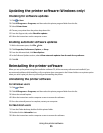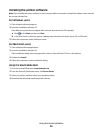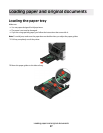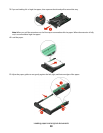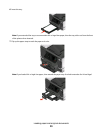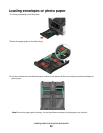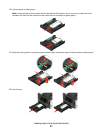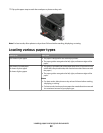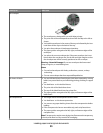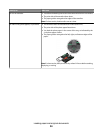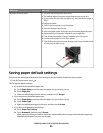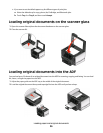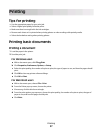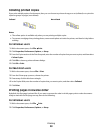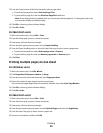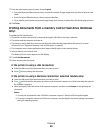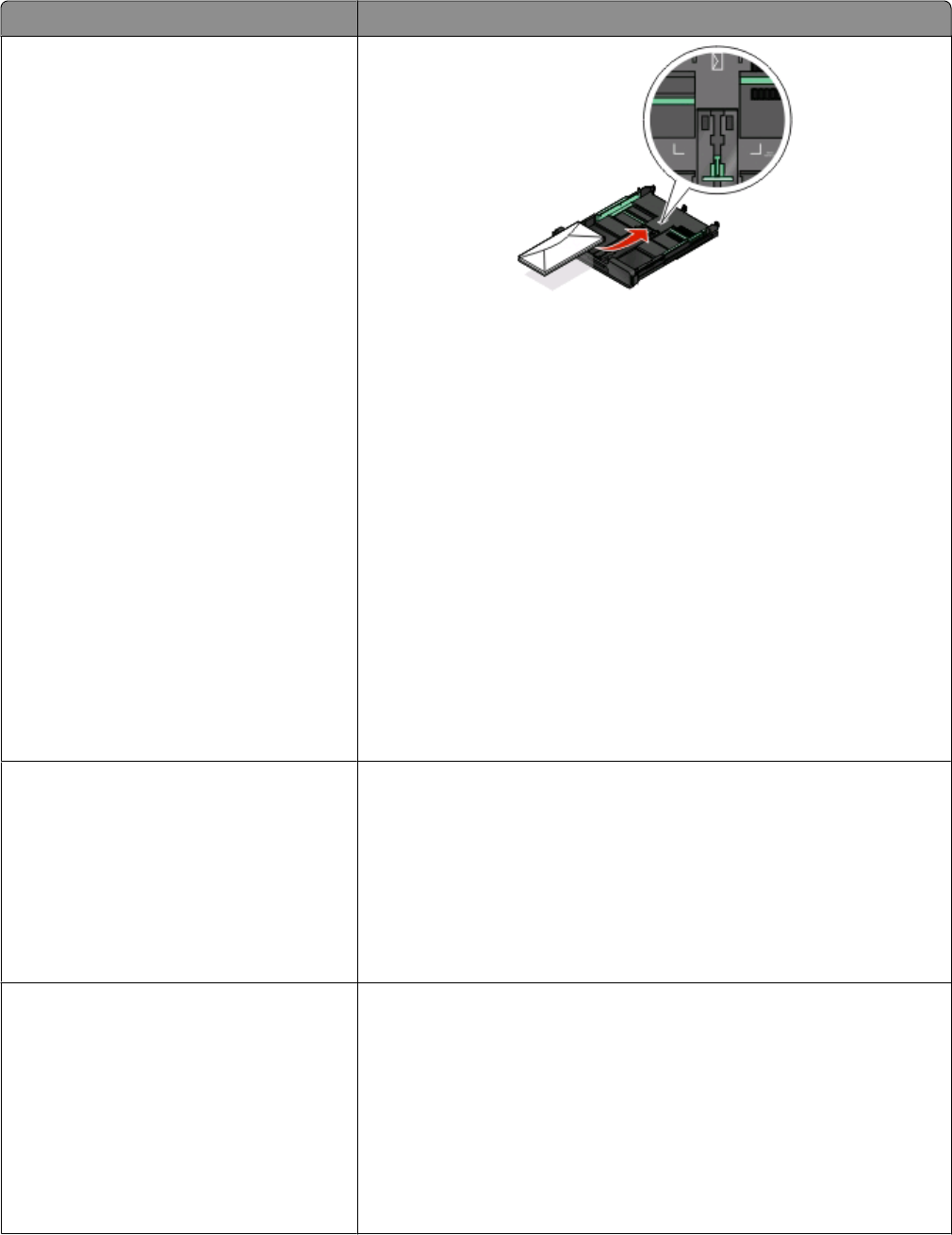
Load up to Make sure
10 envelopes
• The envelopes are designed for use with inkjet printers.
• The print side of the envelopes faces down with the flap to the left as
shown.
• You load the envelopes in the center of the tray as indicated by the icon.
Load them all the way to the back of the tray.
• You print the envelopes in landscape orientation.
• The paper guides rest against the left, right, and bottom edges of the
envelopes.
• You select the correct envelope size. If the exact envelope size is not
listed, select the next larger size. Set the left and right margins so that
the envelope text will be correctly positioned on the envelope.
Warning—Potential Damage: Do not use envelopes that have metal
clasps, string ties, or metal folding bars.
Notes:
• Do not load envelopes with holes, perforations, cutouts, or deep
embossing.
• Do not use envelopes that have exposed flap adhesive.
25 sheets of labels
• You use full label sheets. Partial sheets (with areas exposed by missing
labels) may cause labels to peel off during printing, resulting in a paper
jam.
• You load letter- or A4-size label sheets.
• The print side of the labels faces down.
• The top of the labels feeds into the printer first.
• The paper guides rest against the left, right, and bottom edges of the
label sheets.
50 transparencies
• The rough side of the transparencies faces down.
• You load letter- or A4-size transparencies.
• You remove any paper backing sheets from the transparencies before
loading.
• If the transparencies have a removable strip, each strip faces down.
• The paper guides rest against the left, right, and bottom edges of the
transparencies.
Note: Transparencies require more drying time. Remove each transparency
as it exits, and allow it to dry to avoid ink smudging.
Loading paper and original documents
33



